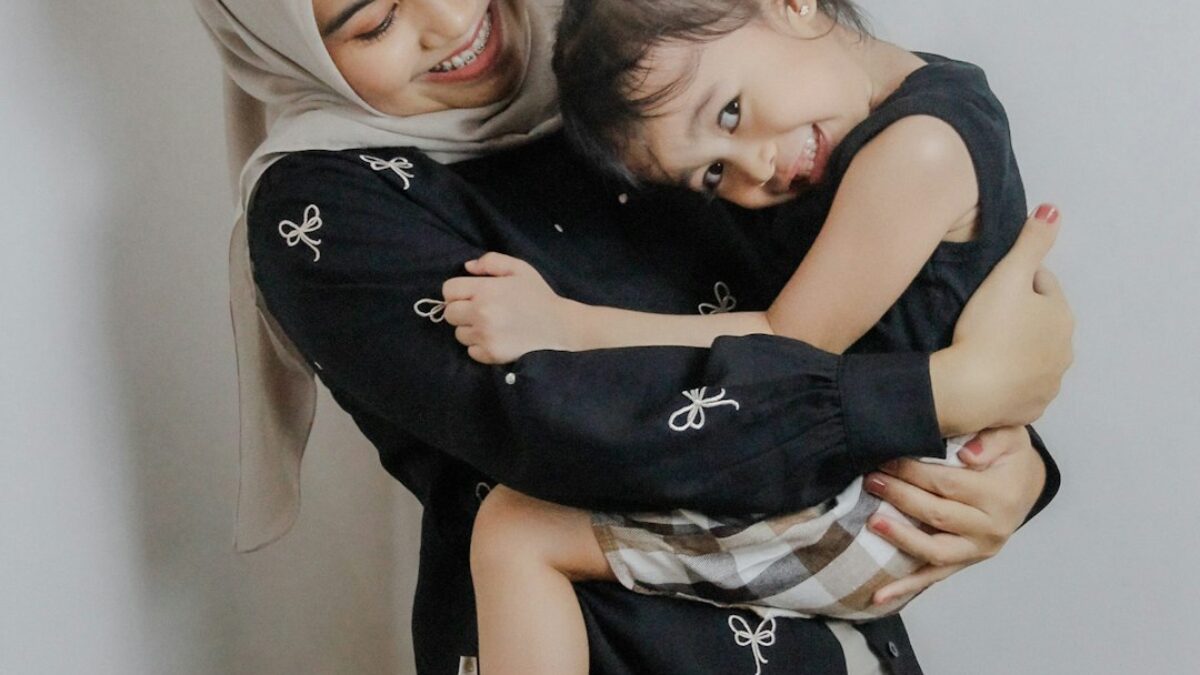Raising children who walk confidently in their faith while contributing positively to society is the dream of every Muslim parent. In a world saturated with competing values, raising righteous Muslims demands more than good intentions—it requires deliberate strategies rooted in Islamic teachings and modern child development insights. This guide distills timeless Qur’anic wisdom, prophetic example, and contemporary research into actionable steps that any family can start using today. Whether you are a new parent or seeking to refine your approach, the following pages will equip you with the tools to nurture taqwa (God-consciousness), akhlaq (exemplary character), and resilient Islamic identity in your children.
Understanding the Islamic Framework of Parenting
Islam views children as an amanah (trust) from Allah. The Qur’an repeatedly addresses both parents and children, signaling that upbringing is a shared spiritual obligation. Surah At-Tahrim reminds us to “protect yourselves and your families from a Fire whose fuel is people and stones” (66:6), establishing protection—not only physical but also spiritual—as the primary objective. Consequently, Islamic parenting is goal-oriented: to facilitate each child’s journey toward their ultimate purpose, ‘ibadah (worship), in its broadest sense.
Unlike secular models that prioritize self-actualization, the Islamic paradigm balances individual fitrah (innate disposition) with collective responsibility. Parents act as shepherds, as narrated by Prophet Muhammad ﷺ: “Each of you is a shepherd and each of you is responsible for his flock.” This hadith frames parenting as leadership—firm yet compassionate, guiding yet enabling autonomy within the boundaries set by shari’ah.
Fitrah-Centered Development
Every child is born on the fitrah, a natural inclination to believe in Allah. Environmental influences can veil this fitrah, so the parental role is to keep it polished. Daily practices that connect children to their Creator—such as saying Bismillah before eating or reciting Surah Al-Ikhlas before sleep—serve as gentle polishers. Over time, these micro-worships accumulate into an internalized rhythm that feels as natural as breathing.
Adab Before Information
Western pedagogy often stresses “critical thinking” early on. While reflection is valued in Islam, adab (respectful comportment) is the prerequisite. Imam Al-Ghazali likened knowledge without adab to a “fire that burns the house.” Parents should therefore prioritize respectful listening, orderly spaces, and courteous speech long before introducing complex theology. A child who learns to lower their voice in anger, for instance, is better prepared to understand why Allah praises “those who restrain their rage” (3:134).
Key Components of Righteous Upbringing
Raising righteous Muslims is analogous to constructing a sturdy building: multiple pillars reinforce one another. Below are the seven core pillars, each intertwined with practical rituals you can adopt tonight.
1. Tawheed-Centric Atmosphere
Tawheed, the oneness of Allah, must saturate the home’s air. Use the five daily prayers as family punctuation marks rather than isolated rituals. Place prayer mats in a visible “salah corner,” allow children to call the adhan, and celebrate milestones such as the first full fast with a handmade ‘ibadah chart. Narrate daily events through a tawheedi lens: “The rain you’re jumping in is Allah’s mercy; let’s count the drops as blessings.”
2. Prophetic Role-Modeling
Children mimic before they internalize. Parents must embody the shama’il (prophetic traits): smiling, truthful speech, measured anger. Create a “Hadith of the Week” dinner session where each family member acts out a narration. One week you might dramatize the Prophet ﷺ feeding the camel before himself; the next week, children can practice serving siblings first at dessert.
3. Qur’anic Literacy
Recitation is only the first layer. Aim for comprehensive literacy: pronunciation (tajweed), meaning (tafsir), and application (tadabbur). Use layered learning:
- Micro-memorization: one ayah at Fajr, reviewed at Maghrib.
- Story maps: sketch the sequence of Surah Yusuf on a scroll.
- Ayah journals: after reading a verse about patience, children glue a photo that illustrates sabr in their lives—perhaps a sibling sharing toys.
4. Fiqh of Routine
Turn mundane acts into ibadah by teaching the fiqh of cleanliness, dress, and food. Hang a colorful “Fiqh Flowchart” near the bathroom: “Did you use the left hand? Say ghufranak. Close the tap?” When children see religious rulings as friendly checklists rather than burdens, compliance morphs into habit.
5. Emotional Intelligence From the Seerah
The Prophet ﷺ validated emotions while guiding behavior. When his grandson cried during prayer, he shortened the recitation instead of scolding. Create an “Emotion Exit Card” system: children write or draw feelings they can’t verbalize and drop them into a decorated box. Parents respond with prophetic strategies—deep breathing (istirja’), making wudu, or voluntary prayer.
6. Community Immersion
A child raised solely within four walls risks viewing Islam as a private ritual. Schedule monthly “Neighborly Deeds Day”: bake cookies for the fire station, hand out umbrellas at the mosque on a rainy Jumu’ah, or plant trees in the park under the supervision of a local imam. Document these acts with photos; compile them into a yearly zakah scrapbook to visualize social impact.
7. Digital Guardianship
Technology is not the enemy; unsupervised access is. Draft a “Digital Wudu” protocol: before any screen time, children perform wudu and read two rak’ahs, symbolically cleansing intention. Install parental filters, but more importantly, co-view content. After watching an animated tafsir video, ask Socratic questions: “Why did Prophet Nuh persist despite ridicule?” This converts passive consumption into critical reflection.
Benefits and Importance
The investment yields both worldly and eternal dividends. Worldly benefits include:
Higher self-esteem rooted in divine approval rather than peer validation. Lower susceptibility to addictive behaviors; God-consciousness acts as an internal policeman. Academic resilience: understanding that knowledge is an act of worship reduces procrastination.Eternal benefits are underscored by the Prophet’s guarantee: “When a human dies, his deeds stop except for three… a righteous child who prays for him.” Hence, every bedtime du‘a your child makes becomes your post-retirement fund, earning compound interest in the Hereafter.
On the macro level, righteous families seed civil society. The Ottoman madrasah system, Andalusian libraries, and West African scholarship all began with parents teaching letters inside humble homes. Modern Muslim minorities can replicate this by producing professionals who retain ethical anchors—doctors who refuse bribes, journalists who verify truth, programmers who reject spyware.
Practical Applications
Theory without application resembles a lantern without oil. Below are step-by-step blueprints for different age bands, followed by scenario-based solutions to common challenges.
Ages 0-5: Planting Seeds
- Bedtime Sunnah Routine: After finishing a bedtime story, recite Ayat al-Kursi together three times, blow on little palms, and guide them to wipe over face and body. Toddlers fall asleep feeling Allah’s protection is as tangible as mum’s hug.
- Halal Sensory Bins: Fill a plastic tub with lentils, hide small cards bearing Allah’s names. As children dig, they pronounce the name they uncover. Kinesthetic learning anchors abstract concepts.
- Positive Discipline: Replace “Don’t run inside!” with “Let’s race to the garden; angels run with us outside.” Redirecting channels energy instead of suppressing it.
Ages 6-11: Constructing Scaffolding
- Salah Ownership: Purchase a colorful prayer mat for each child. Allow them to choose the design, signaling autonomy. Track consecutive prayers on a wall calendar shaped like a minaret; reaching the dome earns a family picnic.
- Islamic Book Club: Alternate between fiction (“The Adventures of Musa”) and non-fiction (“My First Book on Hadith”). Conclude each session with a creative task—design a movie poster for the Surah you read.
- Micro-entrepreneurship: Encourage lemonade stands where 30% of profit goes to charity. Introduce the fiqh of halal earnings: no deception, fair measurement, and smiling customer service.
Ages 12-15: Guiding Through Storms
Puberty can unravel earlier gains if not handled sensitively. Implement a “Mentorship Swap”: your child spends one weekend a month with a trusted aunt/uncle, while you host their cousin. Exposure to multiple Muslim adults normalizes varying expressions of piety and provides safe spaces to ask awkward questions.
Launch a “Fiqh of Fashion” workshop at the mosque. Teens bring clothes from home; facilitators demonstrate how to layer, alter lengths, and still stay trendy. When modesty is presented as creative styling rather than a ban, adolescents buy-in.
Ages 16-19: Launching Leaders
- Khutbah Rotation: Let youth deliver a two-minute reflection after family prayers. Rotate weekly; offer constructive feedback. Public speaking within the family becomes rehearsal for larger community roles.
- Gap-year Service: Encourage a structured year volunteering with Islamic Relief or a local hospital. Pair service with nightly journaling: “How did I see Allah’s attribute of Al-Razzaq today?” Reflection converts experience into wisdom.
- Financial Literacy: Teach mu‘amalat contracts—mudarabah (profit-sharing) when investing in their university startup, qard hasan (benevolent loan) when siblings need cash. Real-life application cools the appeal of interest-based loans.
Scenario-Based Solutions
Child Refuses to Pray
Diagnose: Is it laziness, peer ridicule, or theological doubt?
- Lazy: Introduce the “Two-minute rule.” Ask them to stand in salah for only two minutes—essentially one Surah and a few takbirs. Gradually elongate. Starting small circumvents overwhelm.
- Peer ridicule: Enroll them in a mosque basketball league where athletes also pray in congregation. Normalization through aspirational figures works better than lectures.
- Theological doubt: Share the hadith of the man who prayed imperfectly yet Allah welcomed him due to effort. Emphasize relationship over ritual perfection.
Secret Social Media Account
Rage and confiscation trigger secrecy. Instead, schedule a “Digital Disclosure Night.” Parents reveal their own online mistakes first, modeling vulnerability. Then negotiate a “Trust but Verify” contract: passwords shared, random checks allowed, but privacy respected if no red flags appear for six months. Include clause that any discovered inappropriate content is discussed, not punished, within 24 hours.
Frequently Asked Questions
What is the ideal age to start teaching my child Qur’an?
Start listening exposure from birth; auditory memory forms rapidly in infants. Begin structured recitation around age four when phonetic loops stabilize. Use the “3-3-3” rule: three minutes of recitation, three minutes of playful stretching, three minutes of recitation again. Short bursts align with early childhood attention spans. Remember, the goal is love, not hifz completion. Celebrate correct pronunciation of a single letter with the same enthusiasm you would a full juz’.
How do I balance school demands with Islamic education?
Adopt an integration, not addition mindset. If your child studies volcanoes in science, discuss the Qur’anic verse about Allah showing signs “in the horizons and within yourselves” (41:53). Use homework time to practice barakah: begin with Basmala, work in 25-minute focused intervals (Pom


Post Comment